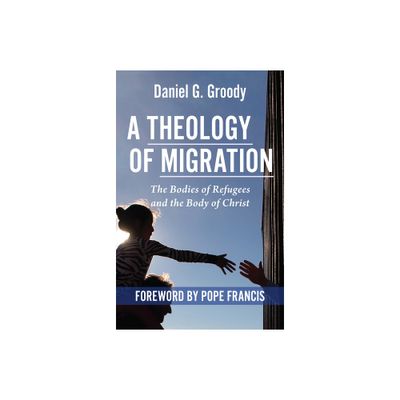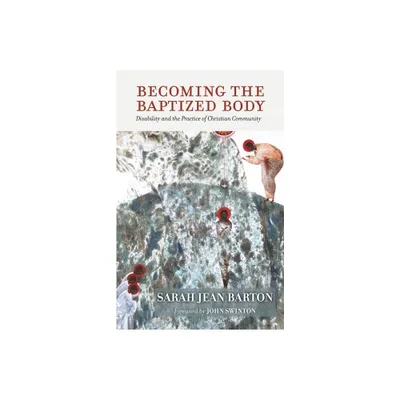Home
Wondrously Wounded: Theology, Disability, and the Body of Christ
Loading Inventory...
Barnes and Noble
Wondrously Wounded: Theology, Disability, and the Body of Christ
Current price: $54.99


Barnes and Noble
Wondrously Wounded: Theology, Disability, and the Body of Christ
Current price: $54.99
Loading Inventory...
Size: Paperback
*Product Information may vary - to confirm product availability, pricing, and additional information please contact Barnes and Noble
The church welcomes allor it should.
The church has long proven itself a safe refuge despite the sad reality that it can be, and has been, unwelcoming toward those perceived as different. This is especially true of the contemporary church's response to those with disabilitiesa response often at surprising variance with its historic practices of care. The church once helped shape western morality to cherish these individuals with love and acceptance. It is thus ironic when today's church neglects this care, or practices care with no awareness of the rich theological history out of which such moral sensibilities originally emerged. In
Wondrously Wounded
, Brian Brock reclaims the church's historic theology of disability and extends it to demonstrate that people with disabilities, like all created in God's image, are servants of God's redemptive work.
Brock divides his volume into five parts.
Part one
chronicles how early Christianity valued and cared for those with disabilities, putting into practice Jesus' teachings about divine mercy in decidedly countercultural ways.
Part two
details how a rise in the fear of disability tempted the church away from these merciful practices as well as its confession of the infinite worth of all God has created.
Part three
traces how the fear of difference continues to negatively shape contemporary practices in today's schools, churches, and politics.
Part four
lays the foundations of a vision of Christian life that is resistant to this pervasive fear. Finally,
Part five
shows how the recognition of all people as part of the body of Christ not only demonstrates the love of Christ but displaces the fear of disability in a manner that invites the church beyond even the most ambitious contemporary hopes for full inclusion.
Brock interweaves his historical and theological analysis with the narrative of his own disabled son, Adam. These stories vividly bring into view the vulnerability, as well as the power, of the disabled in contemporary society. Ultimately, Brock argues, those with disabilities are conduits of spiritual gifts that the church desperately needs.
is an appeal to the church to find itself broken and remade by the presence of Christ on offer in the lives of those society has labeled "disabled."
The church has long proven itself a safe refuge despite the sad reality that it can be, and has been, unwelcoming toward those perceived as different. This is especially true of the contemporary church's response to those with disabilitiesa response often at surprising variance with its historic practices of care. The church once helped shape western morality to cherish these individuals with love and acceptance. It is thus ironic when today's church neglects this care, or practices care with no awareness of the rich theological history out of which such moral sensibilities originally emerged. In
Wondrously Wounded
, Brian Brock reclaims the church's historic theology of disability and extends it to demonstrate that people with disabilities, like all created in God's image, are servants of God's redemptive work.
Brock divides his volume into five parts.
Part one
chronicles how early Christianity valued and cared for those with disabilities, putting into practice Jesus' teachings about divine mercy in decidedly countercultural ways.
Part two
details how a rise in the fear of disability tempted the church away from these merciful practices as well as its confession of the infinite worth of all God has created.
Part three
traces how the fear of difference continues to negatively shape contemporary practices in today's schools, churches, and politics.
Part four
lays the foundations of a vision of Christian life that is resistant to this pervasive fear. Finally,
Part five
shows how the recognition of all people as part of the body of Christ not only demonstrates the love of Christ but displaces the fear of disability in a manner that invites the church beyond even the most ambitious contemporary hopes for full inclusion.
Brock interweaves his historical and theological analysis with the narrative of his own disabled son, Adam. These stories vividly bring into view the vulnerability, as well as the power, of the disabled in contemporary society. Ultimately, Brock argues, those with disabilities are conduits of spiritual gifts that the church desperately needs.
is an appeal to the church to find itself broken and remade by the presence of Christ on offer in the lives of those society has labeled "disabled."


















